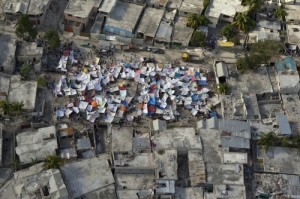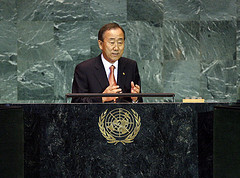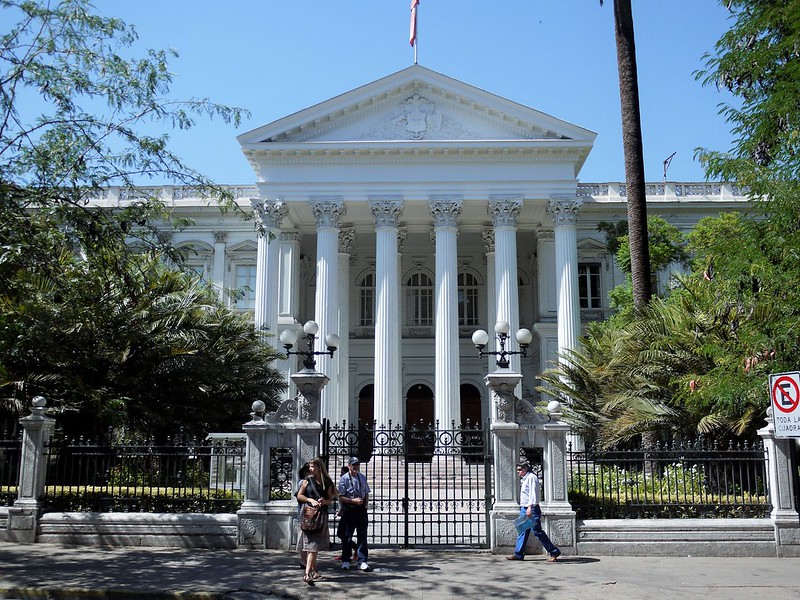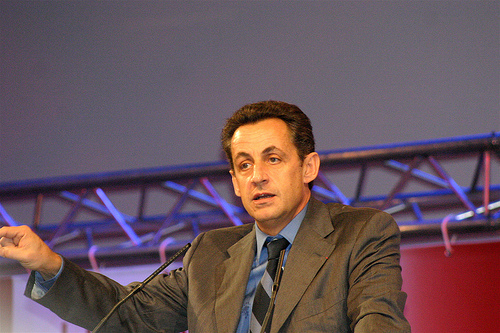
Latin America: Week in Review
Haiti’s Earthquake More Damaging Than Originally Estimated, Study Says
February 17, 2010 By Staff
Today in Latin America
Top Story — A study released by the Inter-American Development Bank (IADB) Tuesday says that the damage from last month’s earthquake in Haiti could have caused billions of dollars more damage than expected.
Estimates for the damage were originally around $5 billion, but the new study estimates the cost could be anywhere from $7.2 billion to $13.2 billion. Part of the reason for this rise in cost was that death toll estimates went from 200,000 to around 250,000.
The damage from the earthquake could be more destructive than that from the Asian tsunami in 2004 or the cyclone that ravaged Myanmar in 2008. However, the rebuilding costs in Haiti will be significantly lower than those after Hurricane Katrina, according to the report.
“While a detailed assessment of needs will come from the so-called Post Disaster Needs Assessment that will be conducted in the coming months, the estimates above indicate that Haiti’s needs will run into several billions of dollars,” said the report, written by Eduardo A. Cavallo, Andrew Powell and Oscar Becerra.
The United Nations, the World Bank as well as the IADB have already begun working on the more detailed estimate of the earthquake’s damage, but this initial report states that Haiti, already the Western Hemisphere’s poorest country, is likely to face a stunted economy for years to come.
Headlines from the Western Hemisphere
North America
- Mexican business mogul Carlos Slim’s America Movil telecommunications company now has to compete with Emilio Azcarraga’s Televisa company as the Mexican government plans to create more competition in the telecom industry.
- Bishops from Mexico’s Roman Catholic Church criticized the Calderon administration for the drug war, saying that there are many human rights concerns.
- Pemex, Mexico’s state oil company, had its biggest finds in a decade, one in the state of Campeche and on in the state of Tabasco.
Caribbean
- The U.S. Coast Guard apprehended 88 Haitians on an overloaded, sinking boat and subsequently repatriated them. It was the second major repatriation of Haitians detained at sea following the Jan. 12 earthquake, but the Coast Guard said it did not believe Haitians are fleeing the country illegally in large numbers.
- U.S. government-sponsored, anti-communist media Radio and TV Marti have less impact than the Gilmore Girls and CSI.
Central America
- Salvadoran authorities arrested three more suspects in the death of French filmmaker Christian Poveda.
- Many ports in the United States plan to expand their facilities because of the expansion of the Panama canal.
Andes
- Colombia’s energy minster says that the country has more energy than it needs and could help Venezuela in its current electricity crisis, however Venezuela said it did not need any help.
- The Peruvian government hopes to reopen Machu Picchu by April 1, 2010. Peru closed the site after floods and landslides blocked travel to Machu Picchu in January.
- UNESCO selected Ecuadorian politician and painter Ivonne A-Baki to be the group’s newest Goodwill Ambassador
Southern Cone
- Brazilian Foreign Minister Celso Amorim said on Monday that a free trade deal between Mercosur and the European Union could be reached by May.
- The Argentine government announced that ships traveling between the country and the Falkland Islands will now need a permit. The Argentine government claims ownership of the islands, where the British plan to drill for oil.
- Juan Carlos González, an Uruguayan soccer player who was part of the 1950 team that took home the World Cup, died at 85.
Image: U.N. Development Program @ Flickr.
Subscribe to Today in Latin America by Email






1 Comment
[…] he would make a formal offer to Venezuela, even though Venezuela said earlier this week that it was not interested in Colombia’s […]
Comments are closed.